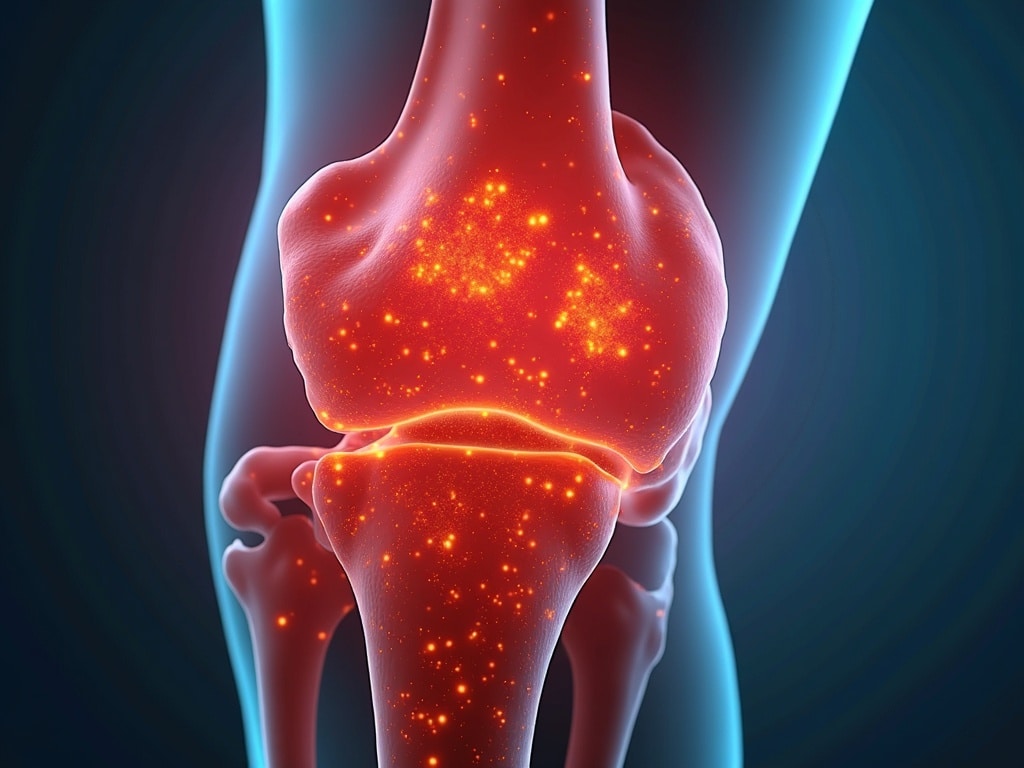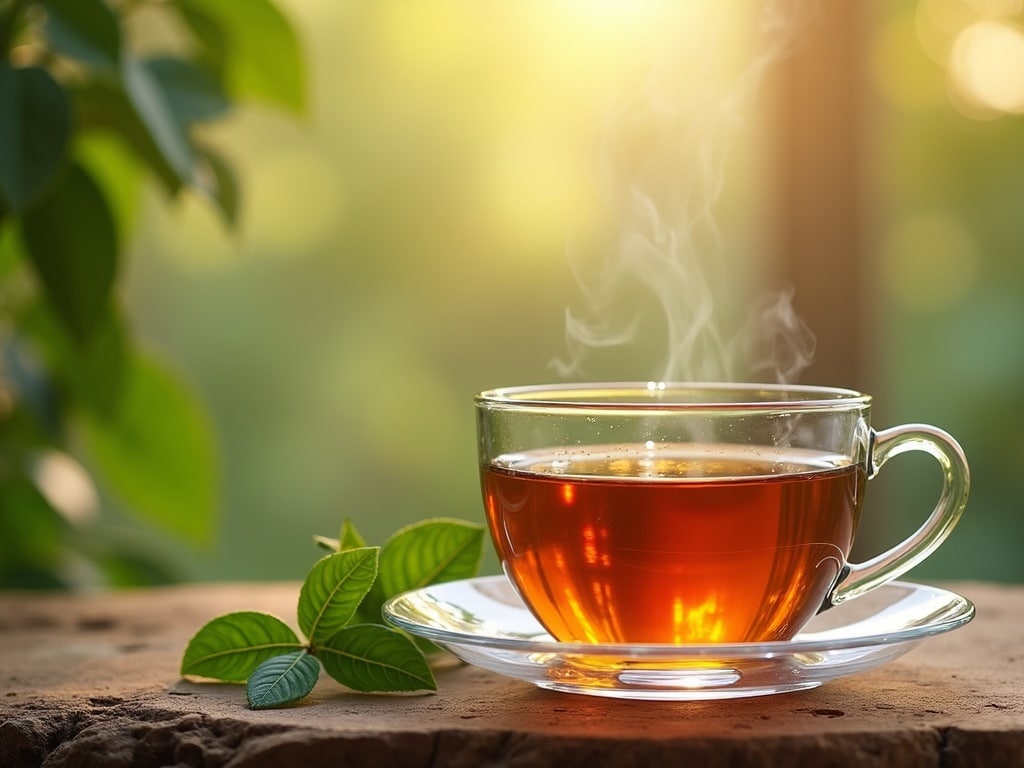The Soothing Sip: Discovering the Best Tea for Joint Inflammation
Imagine a warm, comforting beverage easing the ache in your joints, allowing you to move with more freedom and less pain. It's not just wishful thinking; the world of herbal teas offers a potent and natural way to combat joint inflammation. But with so many options available, which tea is truly the best for soothing those inflamed joints? Let's delve into the world of herbal remedies and uncover the most effective and delicious teas for tackling joint pain.
Understanding Joint Inflammation and the Power of Tea
Joint inflammation, often a symptom of arthritis or other joint-related conditions, can significantly impact your quality of life. It's characterized by pain, swelling, stiffness, and reduced range of motion in the affected joints. While conventional treatments like medications and physical therapy are vital, incorporating natural remedies like tea can provide complementary support.
Tea, particularly herbal varieties, is packed with anti-inflammatory compounds that can help reduce swelling, alleviate pain, and promote better joint health. These compounds, such as antioxidants and polyphenols, work by neutralizing harmful free radicals and inhibiting inflammatory pathways in the body.
Top Teas for Fighting Joint Inflammation
Not all teas are created equal when it comes to anti-inflammatory properties. Here are some of the most effective teas for tackling joint inflammation:
Green Tea: A Potent Antioxidant Powerhouse
Green tea is renowned for its high concentration of epigallocatechin gallate (EGCG), a powerful antioxidant with proven anti-inflammatory effects. EGCG can help reduce the production of inflammatory molecules in the body and protect cartilage from damage. Studies have shown that regular green tea consumption can significantly reduce pain and improve joint function in people with arthritis.
- Brewing Tip: Use water that is hot, not boiling, to preserve EGCG. Steep for 3-5 minutes.
- Taste Profile: Grassy, slightly astringent.
Ginger Tea: A Natural Pain Reliever
Ginger has been used for centuries as a natural remedy for pain and inflammation. It contains gingerol, a compound with potent anti-inflammatory and analgesic properties. Ginger tea can help reduce pain, swelling, and stiffness in the joints, making it an excellent choice for people with arthritis or other inflammatory joint conditions.
- Brewing Tip: Use fresh ginger root for the strongest flavor and benefits. Simmer sliced ginger in water for 15-20 minutes.
- Taste Profile: Spicy, warming, slightly sweet.
Turmeric Tea: The Golden Elixir of Inflammation Control
Turmeric owes its anti-inflammatory prowess to curcumin, a powerful antioxidant and anti-inflammatory compound. Curcumin can help block inflammatory pathways in the body, reducing pain and swelling in the joints. Studies have shown that curcumin can be as effective as some over-the-counter pain relievers in managing arthritis symptoms.
- Brewing Tip: Add a pinch of black pepper to enhance curcumin absorption.
- Taste Profile: Earthy, slightly bitter, warm.
Rose Hip Tea: Vitamin C and Anti-Inflammatory Benefits
Rose hips, the fruit of the rose plant, are rich in vitamin C and other antioxidants. They also contain galactolipids, which have been shown to reduce joint pain and inflammation. Rose hip tea can help improve joint mobility and reduce the need for pain medication in people with arthritis.
- Brewing Tip: Steep dried rose hips in hot water for 10-15 minutes.
- Taste Profile: Tangy, slightly sweet, floral.
White Tea: A Gentle Anti-Inflammatory Option
White tea, like green tea, is rich in antioxidants, but it undergoes less processing, resulting in a milder flavor and potentially higher antioxidant content. It contains polyphenols that can help reduce inflammation and protect cartilage from damage. White tea is a good option for those who find green tea too bitter.
- Brewing Tip: Use cooler water than you would for green tea to avoid bitterness. Steep for 1-3 minutes.
- Taste Profile: Delicate, slightly sweet, floral.
Chamomile Tea: Relaxation and Pain Relief
While not as potent as some other teas on this list, chamomile tea offers a gentle anti-inflammatory effect and can help promote relaxation, which is crucial for managing chronic pain. Chamomile contains compounds that can help reduce muscle spasms and calm the nervous system, contributing to overall pain relief.
- Brewing Tip: Steep chamomile flowers in hot water for 5-7 minutes.
- Taste Profile: Floral, slightly sweet, calming.

Beyond the Brew: Maximizing the Benefits of Tea for Joint Health
Drinking tea is a fantastic way to support joint health, but there are a few things you can do to maximize its benefits:
Choose High-Quality Tea
Opt for loose-leaf tea or tea bags from reputable brands that use high-quality ingredients. This ensures that you're getting the most potent and beneficial compounds from your tea.
Brew it Right
Follow the recommended brewing instructions for each type of tea to extract the maximum flavor and health benefits. Pay attention to water temperature and steeping time.
Drink it Regularly
Consistency is key. Aim to drink 2-3 cups of tea per day to experience the full benefits for joint inflammation.
Combine with Other Healthy Habits
Tea is a valuable tool, but it's most effective when combined with other healthy habits, such as a balanced diet, regular exercise, and stress management techniques.
Potential Side Effects and Precautions
While tea is generally safe for most people, there are a few potential side effects and precautions to consider:
- Caffeine: Green, white, and black teas contain caffeine, which can cause anxiety, insomnia, and other side effects in sensitive individuals. Opt for decaffeinated versions if needed.
- Interactions with Medications: Some teas, such as ginger and turmeric, can interact with certain medications, such as blood thinners. Talk to your doctor if you have any concerns.
- Allergies: Although rare, some people may be allergic to certain herbs used in teas. Start with a small amount and monitor for any adverse reactions.
- Pregnancy and Breastfeeding: Certain herbal teas may not be safe during pregnancy or breastfeeding. Consult with your doctor before consuming herbal teas if you are pregnant or breastfeeding.
The Final Sip: A Path to Soothing Joints
Finding the best tea for joint inflammation is a personal journey. Experiment with different types of tea to discover which ones provide the most relief and enjoyment for you. Whether it's the antioxidant power of green tea, the pain-relieving properties of ginger, or the golden goodness of turmeric, incorporating tea into your daily routine can be a delicious and effective way to support joint health and improve your overall well-being. So, brew a cup, sit back, and let the soothing warmth of tea ease your aches and pave the way for more comfortable movement.
